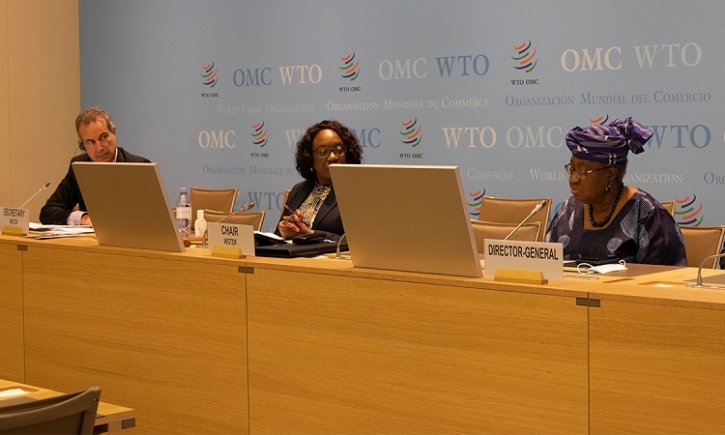WTO members look to MC12 outcome on trade finance
BI Desk || BusinessInsider

WTO members look to MC12 outcome on trade finance. Photo: Collected
Ngozi Okonjo-Iweala, director general of World Trade Organisation (WTO), has encouraged its members to build on their discussions to develop a trade finance work programme in the run-up to the 12th Ministerial Conference (MC12).
Speaking at a meeting of the Working Group on Trade, Debt and Finance on May 17, she also emphasised the importance of trade finance for developing economies, particularly least-developed countries, and offered her support to the group’s efforts to catalyse trade finance support for those needing it the most.
Declining private trade credit line availability has had a knock-on effect on low to middle-income countries, which have few government schemes to help importers and exporters and frequently lack export credit agencies or even adequate fiscal resources to make trade finance available to businesses, DG Ngozi Okonjo-Iweala told WTO members at the meeting.
“Multilateral development banks provided an estimated record $35 billion in one year, but it is only a dent in the $1.5 trillion trade finance gap,” DG Okonjo-Iweala noted.
“Working capital costs including for the financing of trade have increased 30 percent over the past year on average, 60 percent in some developing countries. … The rejection rate for trade finance applications of small and medium enterprises is 45 percent internationally, leading in half of these cases to trade transactions being abandoned,” she said.
DG Okonjo-Iweala reaffirmed that trade finance is both a financial and a trade issue which is pertinent to the business of the WTO.
She said, “I'm convinced we have absolutely no way of integrating developing members more effectively into the multilateral trading system without better attention to this issue.”
The DG recalled the WTO's instrumental role “in mobilizing trade finance to the benefit of members” during the 2008-2009 financial crisis, when a wider credit crunch impacted the availability of low-risk trade finance.
The WTO played a convening and advocacy role, and took part in dialogue with regulators to ensure trade finance's low risks were reflected in new financial stability rules.
The WTO also helped with technical assistance, country diagnostics and analysis related to technical assistance.
Looking forward, she welcomed the new proposal made by Côte d'Ivoire and encouraged the working group to “guide the process and contribute to MC12 (the 12th Ministerial Conference) outcomes by developing a work programme with support of members, the Secretariat and other organizations.”
She also offered help support members' endeavours in this regard: “I'm willing to help in any way you see fit, interacting with you, with industry leaders, using convening paths to cooperate with international organizations and drawing their support,” she said.
























